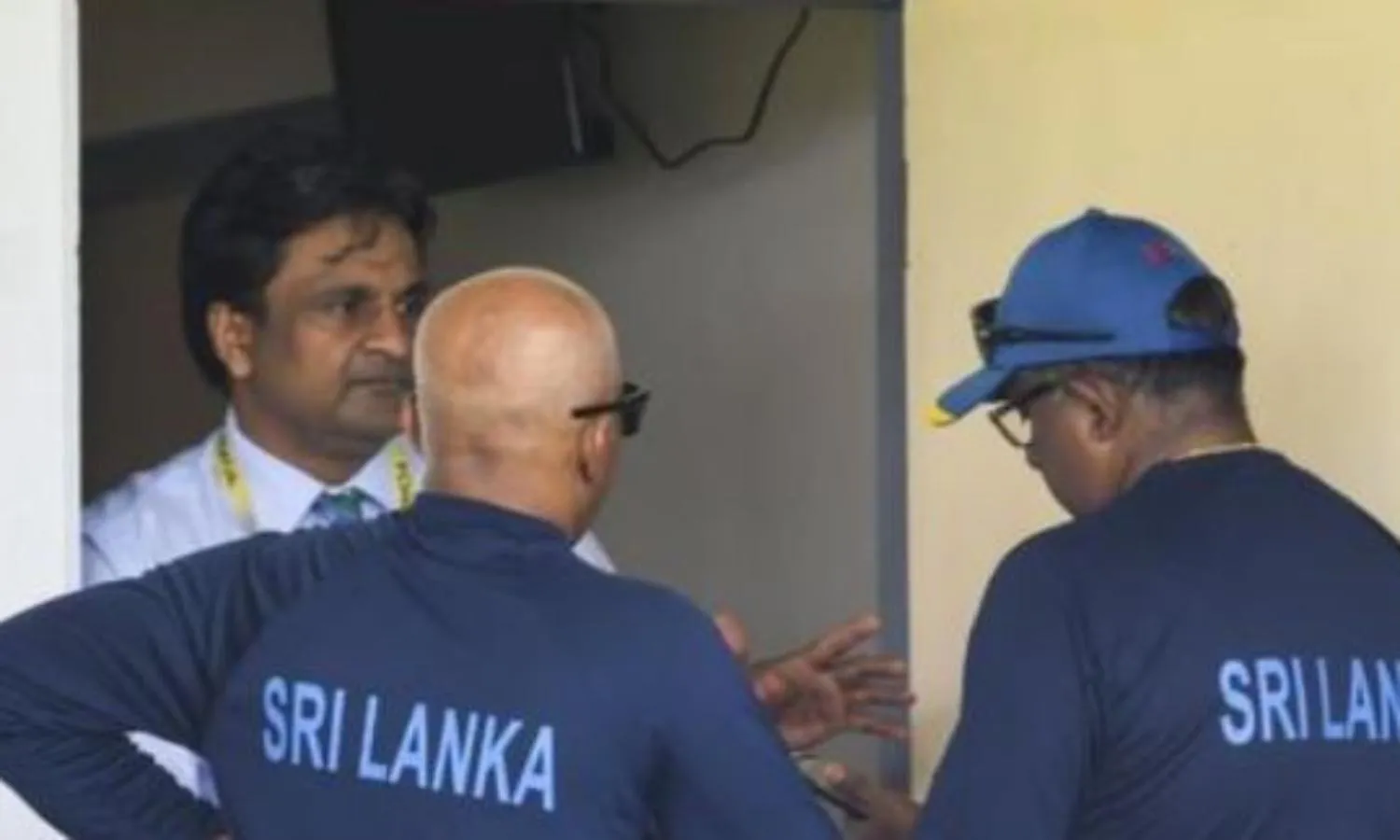When Indiscipline Enters the Cricket Field
Unsavoury

It does not behove a captain of an international sporting team to take the law into his own hands, so to say, and yet it has happened on a few occasions leading to the necessary repercussions according to the rules.
On this ground alone Sri Lanka’s cricket captain Dinesh Chandimal deserves the strongest possible censure under the laws and it is right and proper that match referee Javagal Srinath has thrown the book at him for the unsavoury happenings during the second Test against the West Indies at Gros Islet.
I am going to keep the ball tampering charge aside for the time being even as Chandimal’s appeal against the ban imposed on him by Srinath has been dismissed and he will miss the third and final Test of the series that starts on Sunday. But more to the point Srinath made it clear that Chandimal, coach Chandika Hathurasinghe and manager Asanka Gurusinha could even miss further Tests after being charged with ''conduct contrary to the spirit of the game’’ following the side’s refusal to take the field for almost two hours on the third morning. All three have in fact admitted to breaching the ICC Code that relates to ''conduct that is contrary to the spirit of the game.’’
Not taking the field in protest is the kind of behavior that I find deplorable and which is akin to taking the law into your own hands. There are ways and means to register your disapproval but not taking the field is clearly not one of them. The proper course of action is to register your protest at the end of the day’s play and even during intervals. The coach and manager can do whatever is necessary off the field even as play goes on. Under no circumstances should a protest be made by not taking the field.
Test cricket is facing innumerable problems as it is and players not coming on to the field at the stipulated time in protest can only sully the image further. Do the cricketers realize that there is a TV audience of millions around the globe waiting to see them in action? Do the cricketers realize that there are perhaps thousands of people who have paid at the gates to see a full day’s cricket? By not taking the field they are only insulating the game’s followers without him they are nothing.
Much the same charge was made against Inzamam ul Haq the Pakistan captain who refused to lead his team on the field after the scheduled tea interval against England at the Oval in August 2006. That was also in protest against a ball tampering allegation. The umpires took the field at the stipulated time, the two batsmen were out there in the middle but the Pakistan team was missing.
Umpires Darrel Hair and Billy Doctrove waited for some time and then removed the bails and returned to the pavilion along with the England batsmen. Later in the evening it was confirmed that the Test would not be resumed and was awarded to England. For the first time in 129 years of Test cricket’s existence a match was forfeited.
The day after the Test Inzamam was formally charged with ball tampering and bringing the game into disrepute. A month later following investigations, he was cleared of ball tampering but banned for four ODIs for the more serious charge of bringing the game into disrepute.
Not taking the field should never be an option as a means to register a protest. One recalls how in February 1980 at Christchurch the West Indies team unhappy with the umpiring of Fred Goodall refused to take the field after tea on the third day. Although their request for a change of umpire was declined they emerged from their locked dressing room 12 minutes late. Only after lengthy conferences on the rest day did the tourists agree to continue with the match.
Again the behaviour of the tourists was regarded as unpardonable. It was only after such seamy incidents that the ICC swung into action to impose stringent penalties. Indeed right now the charge of bringing the game into disrepute or any act endangering the spirit of cricket is a level three offence and breaching that carries an imposition of four to eight suspension points.
Coming to the ball tampering issue the ICC’s imposition of a suspension on Chandimal when it had not suspended Faf du Plessis for a similar offence in Hobart in 2016 is understood to symbolize a change in the ICC policy. Following the ball tampering incident involving Australia in Cape Town earlier this year match officials have been instructed to impose the harshest possible penalties to ball tamperers. In any case the playing conditions relating to tampering are in the process of becoming more stringent even if those new rules will not come into effect until the end of the year. Suitably stringent rules should also be framed to deal with captains who refuse to take the field as a means to protest.



